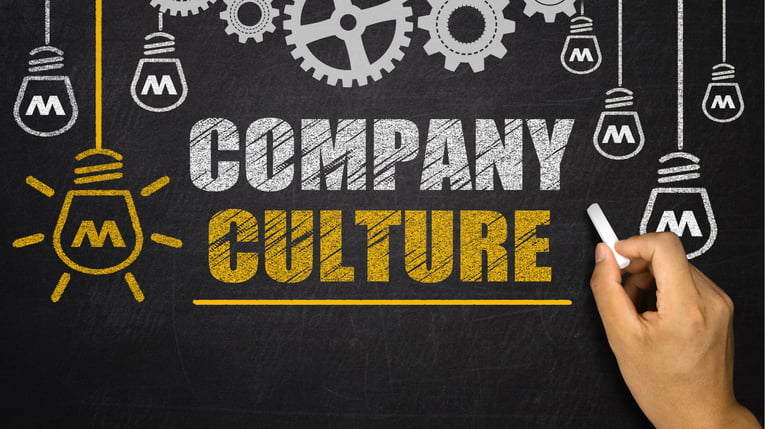The ideal candidate can make all the difference, bringing with them a wealth of experience and enthusiasm to your workplace and providing an excellent culture fit for your organisation. On the other hand, getting your hire wrong can result in wasted time, salary, productivity, training and even a drop in morale for your team.
The Recruitment and Employment Confederation (REC) have estimated that a bad hire at mid-manager level (with a salary of around £42,000) could cost as much as £132,000 if the hire is unsuccessful, and you need to start the process again. More on how we can help you reduce your risk you our new platform here
Yes, that’s a lot of wasted money. So, it’s critical that you get it right the first time.
Good managers know that anyone can be taught practical skills. However, personality traits are inherent and don’t change. While it’s important that your candidate has the right qualifications for the job, many hiring managers and recruiters are choosing to hire based not only on current skills and ability but also on the potential future success of individuals, with the weight very firmly on the side of personality traits.
It's critical that your hiring manager or recruiter ensures the chosen candidate is a good fit for company culture and will be able to mesh with existing employees. So many employers seem unable to gauge an applicant’s ability to do just that.
According to Harvard Business Review, many organisations seem incapable of predicting whether new senior hires will fit in with their company ethos, and they rely too much on their intuition rather than scientifically valid selection tools (more on this later) to make their choices.
So, why are personality traits important, and what should you be looking for?
Although businesses differ in what they do, there are several common traits across all sectors that are crucial to ensure you are making a great hire. Some may be obvious, others less so.
Here are the Top 10 traits to recruit against to ensure you get the right hire the first time!
Autonomy

You’re a busy professional, so you don’t want to have to hand-hold your new employee. Therefore, they need to be able to get on with the job in hand. It’s crucial to have employees who can time-manage effectively, balance their workload and ensure that deadlines are met.
By allowing autonomy to handle their role independently, a sense of empowerment is given to the individual that will lead to increased job satisfaction for them and help establish a sense of trust with their employer.
A recent report by the University of Birmingham found that employees with higher levels of autonomy in their work reported positive effects on their overall well-being and higher levels of job satisfaction.
Leadership Skills
When hiring, this is one of the key traits to look out for. It may not be a leadership position the candidate is applying for, but do they have the potential to lead in the future?
Building a team with a talent funnel prepares your organisation for the future. If you already have capable staff in place, it's quicker, more cost-effective and more desirable to promote from within as your potential candidate already has sector and company knowledge.
Leadership qualities involve several soft skills that enable an individual to positively interact with other members of the team and employees across the organisation.
Qualities they will display include great communication and delegation, showing flexibility and being excellent at giving and receiving feedback.
Additionally, their self-awareness makes them ideal for handling difficult situations or disputes, instilling confidence in others and providing inspiration to drive your team forward.
Good Communicator

Excellent communication skills are a necessary soft skill in any job role. Unless your hire is going to be working in a silo, they will need to be able to communicate clearly with colleagues on an individual level, on a team basis, on the phone, social media and via email.
If they are working with your clients, it’s imperative that they have excellent communication skills to enable them to build successful working relationships.
Depending on the job role, you may require them to represent you, on behalf of the department internally or even the organisation at external events. So, the ability to be clear in their communication is paramount. The ability to formulate ideas, craft concepts and explain procedures and practises is critical in ensuring your new employee will be able to work well with others.
In addition to being good communicators of the written and spoken word, they will need to be an active listener. An active listener doesn’t wait impatiently to have their say or interrupt others. They listen to differing points of view and opinions, asking questions where relevant and giving others the opportunity to share their knowledge and understanding.
This ability to listen to others and correctly interpret what they are saying avoids misunderstandings further down the line.
An effective communicator will build rapport by showing genuine concern, interest and empathy with colleagues and clients.
Cultural Fit

Cultural fit is the personality of your organisation. Its sums up the values, beliefs, behaviour and attitudes of the organisation, as well as its goals and ambitions.
A positive culture embraces diversity and inclusion and is influenced by its leadership, management and individual colleagues. It strives to create a happy, engaged and driven workplace that attracts top talent and retains staff.
Cultural fit is growing in popularity as a deciding factor when hiring new employees – for both candidate and client. In fact, for millennials, culture fit can be a deciding factor in them choosing to take a job or not.
For your organisation, it’s of equal importance to ensure that they will be the right ‘fit’ for you.
It’s all very well choosing a candidate who has impressive qualifications and a glowing CV, but what happens when they arrive and they don’t get on with the team, can’t communicate effectively with the customers and have different values and ethics to their colleagues?
There are several tools you can use to help you confirm if a candidate will be a good culture fit; these include personality tests. These can reveal an expanse of useful information to help you when selecting a new employee. From their work ethic to their reliability, whether they are an action-taker or a methodical planner, the test will enable you to get a clear idea of how they will fit into your team and meet the organisation needs.
Personality tests are also useful for assessing your communication style with individuals to make sure you are dealing with them in the way they respond and understand best; in other words, their communication style preference.
There are many tests online, some of which are free and reasonably short. Other, more comprehensive tests can be purchased (such as the DISC profile) and are incredibly accurate.
Positive mindset

It only takes one negative person to start a chain reaction that can bring down an entire team.
We all have off days, but someone who is continuously seeing only the negatives will demoralise everyone within their sphere. Also, before you know it you have a team who are underperforming, less productive and experiencing a drop in overall well-being.
Therefore, you need to look for a hire who has a positive outlook. Positive people are likely to be happier and, consequently, more resilient and able to perform at a higher level. Moreover, if you do have colleagues with a less positive attitude, perhaps some of this positive mindset will rub off on them too!
The mental capacity to view things positively also enables individuals to see the good in situations and recognise opportunity when it arises – making them a great addition to your forward-thinking and ambitious team.
They are more able to handle change, seeing the benefits long-term. This places them in a good position for promotion in the future, and well as providing motivation for themselves and inspiration for the whole team.
Team Player
It’s not rocket science: teamwork increases efficiency and productivity in the workplace.
A good team demonstrates emotional intelligence and collaborates successfully to get the best out of everyone. They will pull together and create a sense of cohesion and comradeship in the workplace – this is particularly useful in times of crisis or uncertainty as a good team is more likely to work to help the organisation succeed.
A good team player will increase unity amongst colleagues, develop strong bonds of trust and support, and ultimately increase levels and standard of output. Team players contribute by offering differing perspectives, giving and receive feedback on creative ideas, sharing and embracing opportunities and suggesting problem-solving approaches to a task.
Brainstorming, as part of a team, allows individuals to become better able to problem solve and accomplish objectives. It also allows everyone to believe their opinions have been heard and that they have contributed to the solution, which helps the team grow together and feel part of a ‘bigger picture’.
So, your new hire’s positive mindset can help develop the whole team - a bonus for everyone!
Confidence
As we mentioned in a recent blog, confidence isn’t something we are born with, but that grows naturally as we learn. Confidence impacts everyone in your organisation and can be the building block to success.
The ability to believe in oneself is a great trait. A confident employee is more likely to take chances to better themselves and the company overall. They are not averse to taking risks and being more assertive makes them ideal for taking the initiative on projects without too much stress.
Confidence also means they are more resilient and likely to be able to see solutions to problems, prepared to move out of their comfort zone and achieve new heights, both personally and for the organisation. That undoubtedly leads to overall success.
Motivation
You want your employee to be motivated for them to be productive and engaged in their role. An individual who is only in it ‘for the money’, or who, for whatever reason, isn’t engaging with colleagues, their job role, or the company goals isn’t going to be motivated to do a good job.
While smart management plays a large part in motivating staff, some individuals are more motivated than others. Someone who embraces new ideas and concepts, who is interested in what they are doing and feels part of the bigger picture will inevitably be more productive, more creative and happier in their workplace.
Happy employees help create a welcoming office culture, and they enjoy what they do, believing in themselves and the organisation. So that means they are likely to stay with your organisation for longer, reducing the need for you to rehire and onboard.
Adaptability
We all sometimes struggle with change. It’s human nature to want to keep everything the way it is and stay within our comfort zone. However, a good hire will show adaptability and understand the need for change sometimes in order to achieve goals – no one gets anywhere by standing still!
An adaptable worker will be willing and motivated to embrace lifelong learning – seeing it as enabling them to learn more, keep up with industry trends and practises, and consequently move up the career ladder.
A recent survey by the PEW Centre found that 87% of workers believe training and development in new skills will be needed throughout their working lives to keep up with workplace changes.
Therefore, look for someone with a positive, agile outlook who is willing to embrace transformation to ensure you can incorporate new ideas and developments as smoothly as possible.
Emotional Intelligence
Emotional Intelligence (EI) was ranked sixth in the World Economic Forum’s list of the top 10 skills that employees will need to possess to thrive in the workplace of the future.
An employee with high EI exhibits many of the positive traits that we’ve already looked at in this report, and they will inevitably benefit your organisation. Those exhibiting excellent EI are:
-
effective communicators with colleagues and clients, possessing active listening skills and the ability to provide clear and transparent information to others
-
self-aware, able to prioritise and time-manage effectively as well as being more resilient to problems and change to avoid stress and anxiety
-
empathetic, with the ability to understand and work well with other members of the team
-
self-regulatory, good at defusing conflict or difficult situations, and able to manage their own (and others) emotions
-
rational and measured in their response, able to deal with situations in a calm and positive manner and seek solutions to problems
- better able to take feedback constructively as a tool to help them grow and learn
In conclusion, high EI is the sum of all other traits, and any employee exhibiting this trait will make an exceptional hire for your organisation.
A Word About Onboarding
So, you have your hire who exhibits all these traits and looks like being a great fit in your team. Don’t be tempted to sit back and think your work here is done!
It’s advisable that you now consider your onboarding process to ensure the experience is a great one that is both useful and memorable.
Remember, successful onboarding can make the difference between a great first experience and a lasting bad one for the new employee.
It’s critical to ensure you have a detailed plan in place which includes the following:
-
A full description of the job role
-
Orientation (where everything is, what to do in case of emergencies, etc.)
-
Desk, pens, phone, stationery
-
Sundries such as office keys or parking permit
-
Diary plan of induction meetings with key colleagues
-
Information about the organisation’s goals and culture
Over the first three months, your new hire will also need a personal development plan with milestone goals to tick off. This will both motivate and encourage them in their new role and enable you to ensure that tasks and training are completed in a timely fashion.
By meeting regularly with your employee, you will also be able to offer the opportunity for them to ask questions, and for you to clarify everything is going well for them.
Research studies by Harvard Business Review show that a good onboarding process reduces the average amount of time to reach full performance by a third, from six months to four.
So, giving your new hire a great onboarding experience will ensure they settle in quickly and soon become an integral part of a productive and cohesive team.
Conclusion
Following these top ten traits will enable you to successfully hire (and onboard) an employee who will be an asset to your team.
As well as providing a great cultural fit, individuals who exhibit these top traits, or ‘soft skills’, will potentially be the ideal candidates for promotion in the future; willing and motivated to take the organisation further to reach its goals and aspirations.
Here at LWR, we have dedicated staff who can help you build a resilient, confident team that collaborates well to fulfil your organisation goals. We know it’s not always easy to gauge who is the ideal fit for your organisation at interview. But, because we have our own talent pipelines, we already know the character and traits of our candidates.
We offer support and guidance on all aspects of recruiting, interviewing and compiling competency-based questions to ensure you make the right hire to take your organisation forward. Additionally, we offer training for hiring managers to ensure they are fully confident in holding interviews and are clear in their communication style. We give candidates the best advice possible in preparing for interview to ensure they have a positive experience and find the right position for them.
If you are looking to make the ideal hire in your organisation and would like to talk to us about making it happen, please call us on 0113 367 2880 to have a conversation with one of our team. Alternatively drop us an email here or check out our Testimonials and Case Studies.
I’d like to leave you with this quick assessment that allows you to explore your own personality – it’s scientifically backed and is a fun way to find out more about yourself and what makes you tick!








.png)
.png)


.jpg)





.png)





